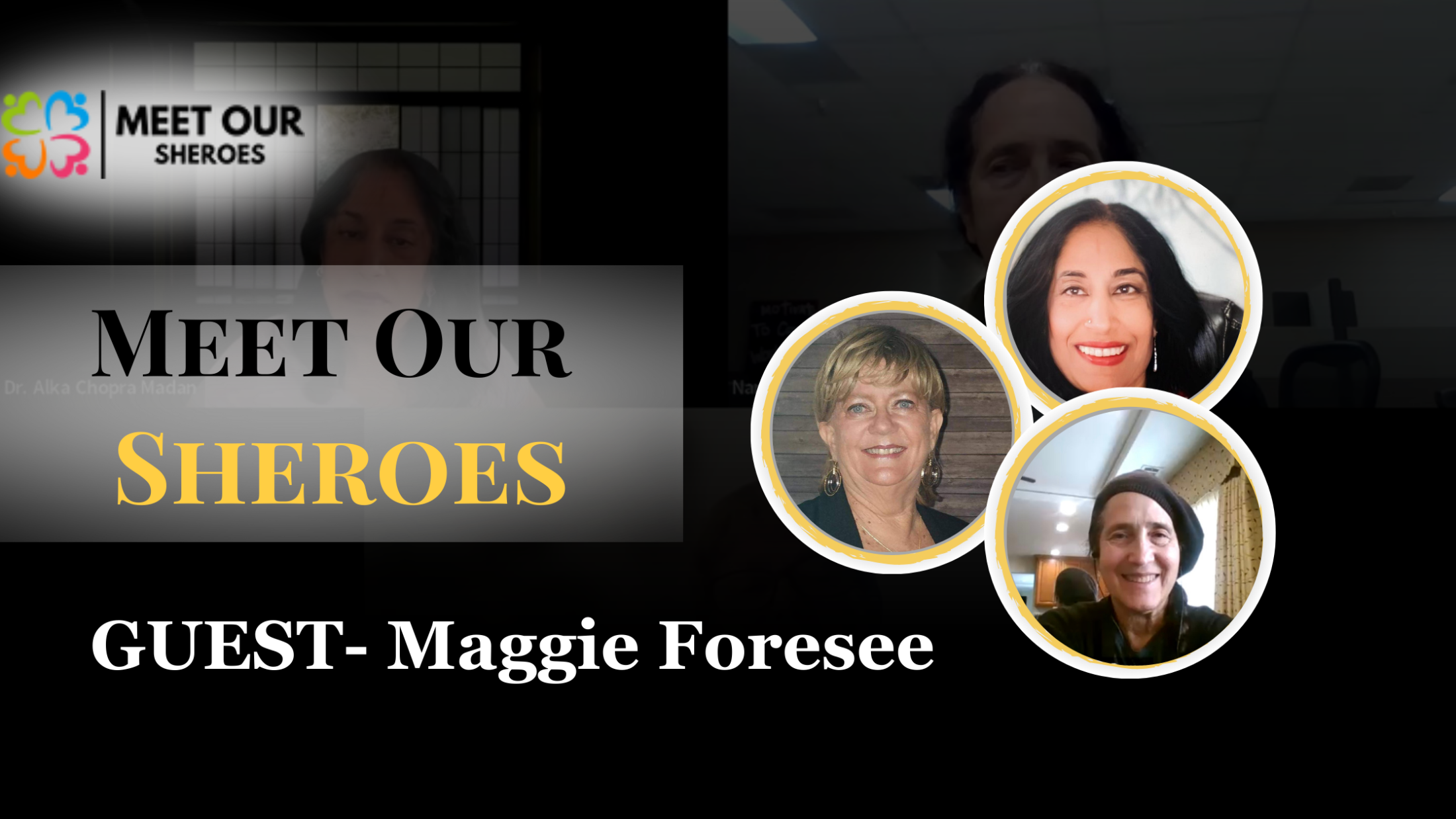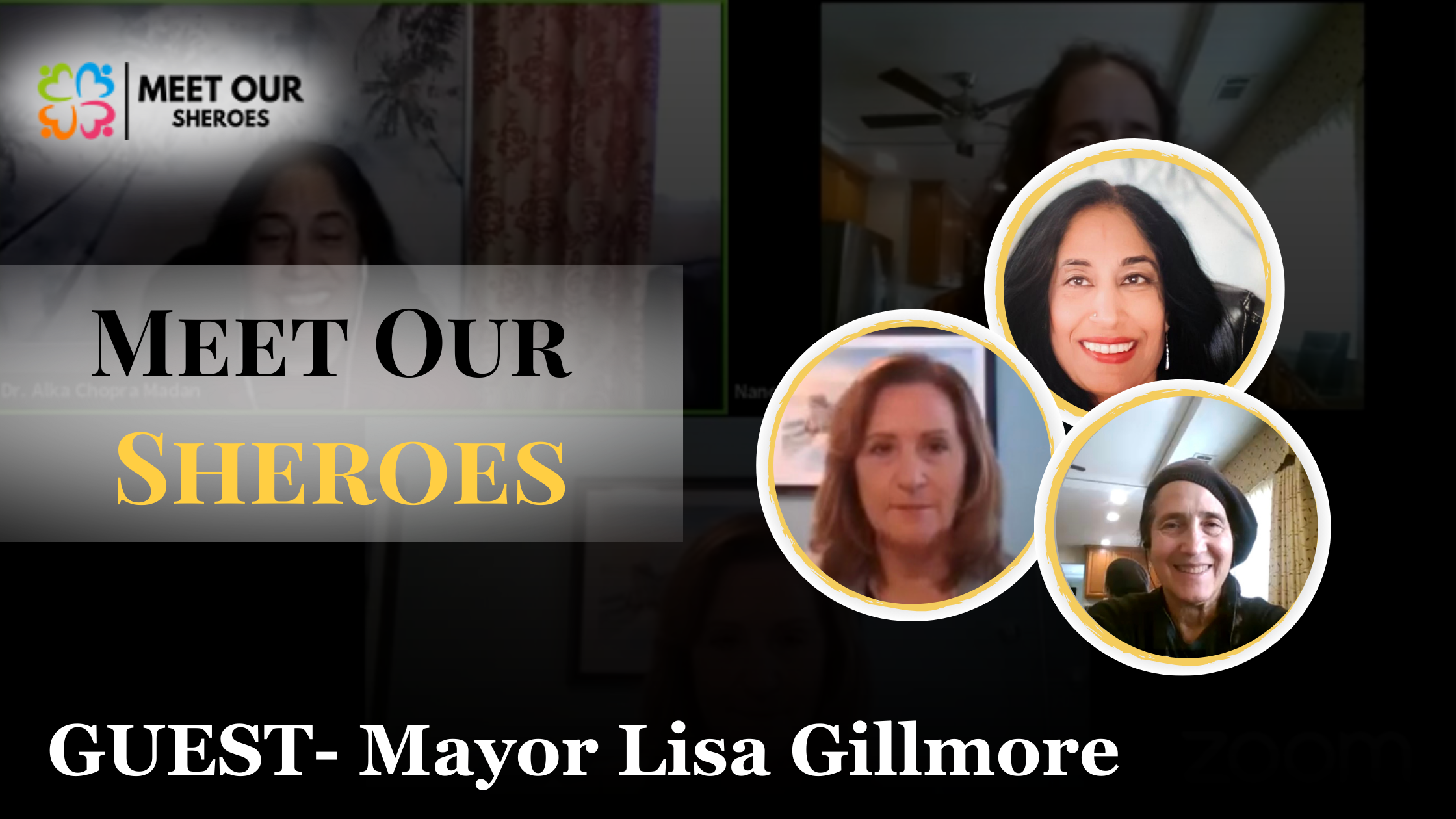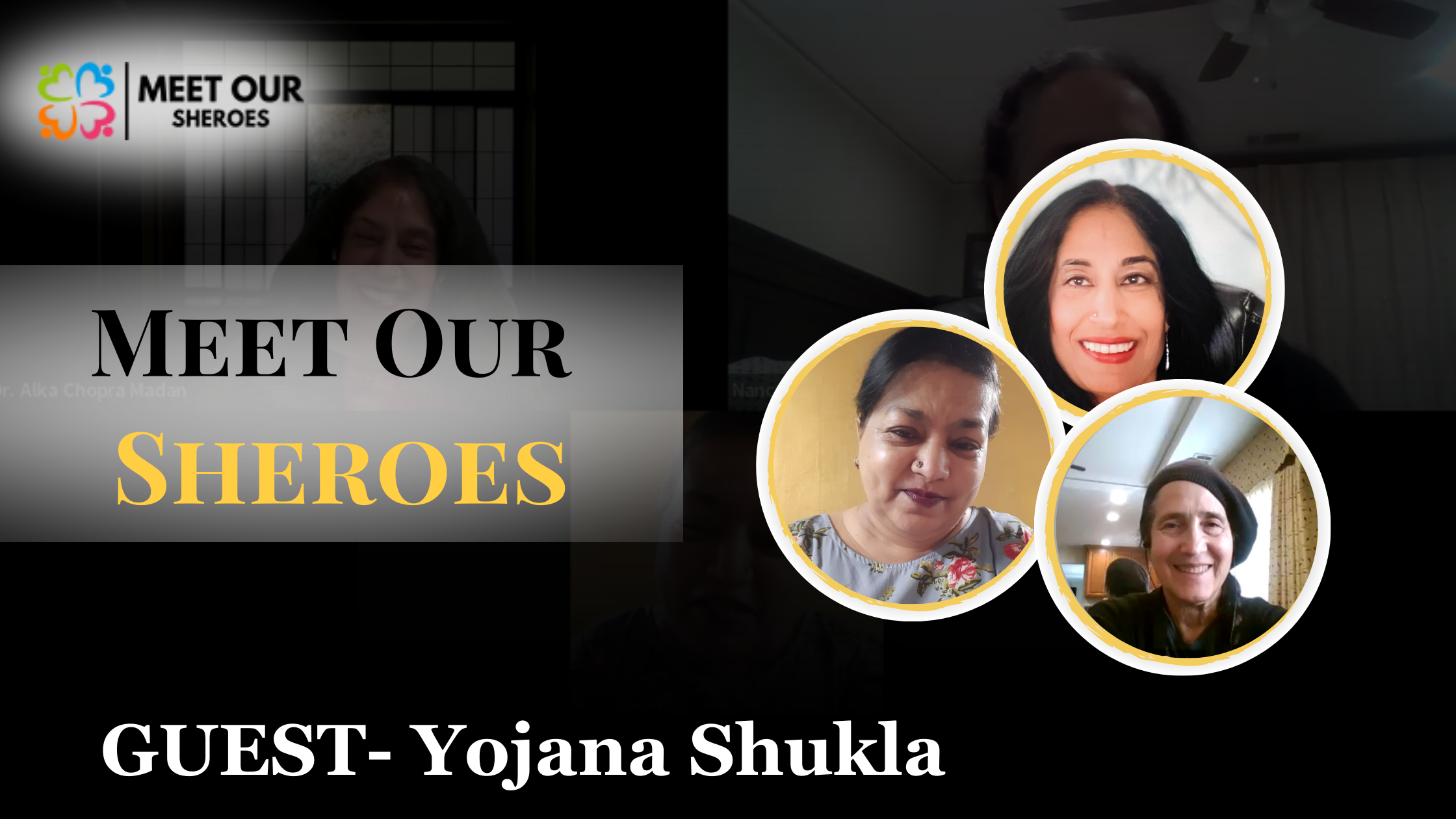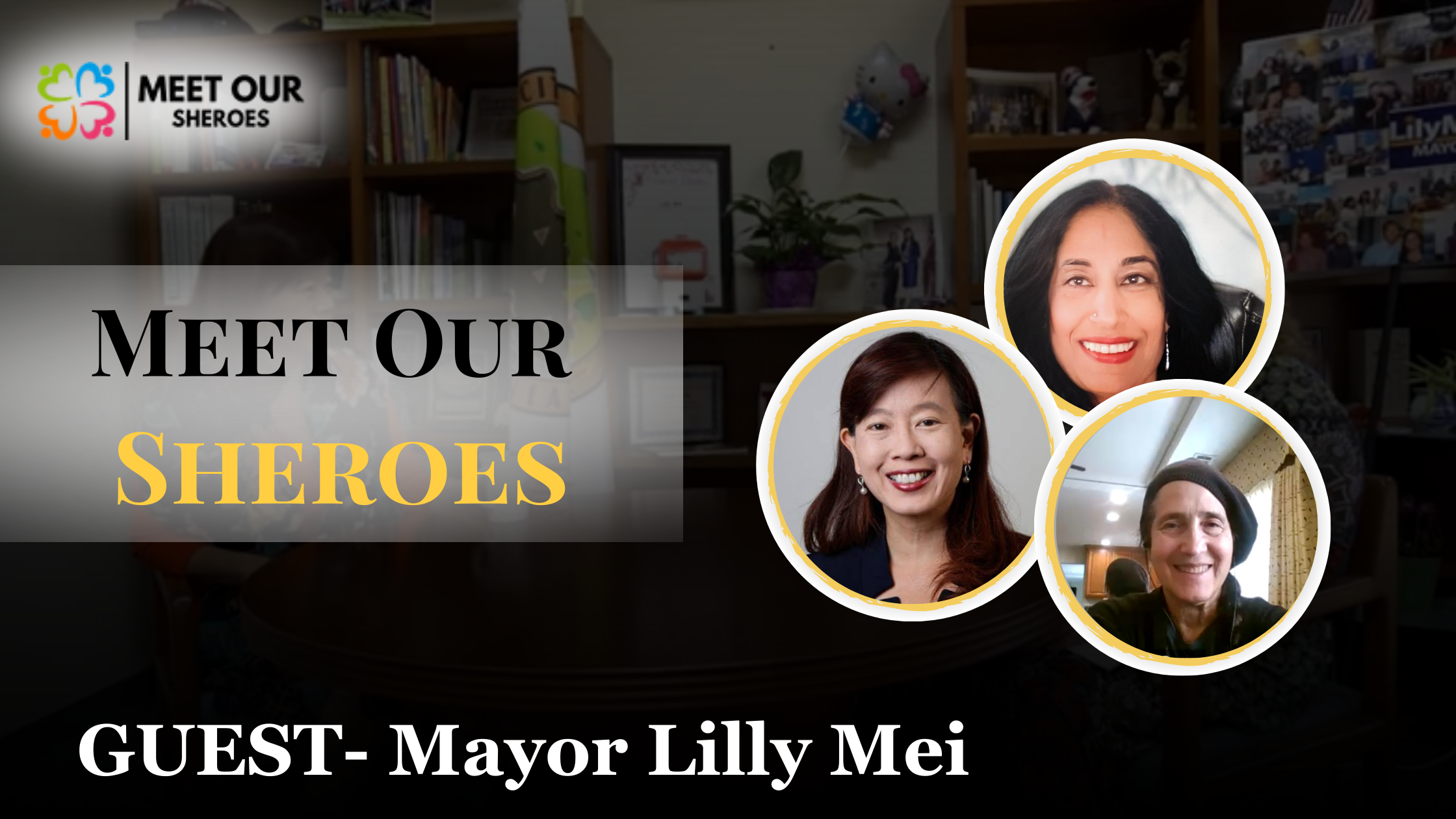In our ongoing “Meet Our Sheroes” series, where we invite women of eminence and prominence to share their stories, we are delighted to feature Maggie, a dynamic individual whose journey is a testament to the transformative power of the performing arts.
Maggie’s story begins in a large family, being the youngest of 12 children. Growing up in such a vibrant household, creativity was a necessity. “We kind of created our own Performing Arts at all times,” Maggie recalls, sharing how they entertained themselves and each other, fostering a love for the arts that would shape her future. This creative environment extended into her schooling. Maggie attended a high school with an excellent theater program in Campbell, California, which allowed her to nurture her passion for performing arts. Her love for the arts took her across the United States, performing as a singer and developing a deep connection to the world of performance.
Fast forward to today, and Maggie, along with her daughter, has co-founded the Tracy Theater Arts Collaborative. This nonprofit organization was born out of a shared vision to create opportunities for individuals of all ages in their community to engage in performing arts. “We are looking to broaden and build up the perspective of opportunities for Performing Arts for individuals, from very young to our senior community,” Maggie explains.
The Tracy Theater Arts Collaborative is more than just a theater group—it’s a beacon of education and empowerment. The organization offers educational opportunities in performing arts, catering to people of all experience levels. From novices to seasoned performers, everyone is welcome. The Collaborative also invites experienced professionals to conduct master classes, providing an invaluable resource for those eager to refine their craft.
Education is at the heart of the Tracy Theater Arts Collaborative. Maggie emphasizes the importance of providing education opportunities to help individuals build character and confidence. “We feel that performing arts really changes lives,” she says. The Collaborative seeks to create an inclusive environment where everyone, regardless of their background or experience level, can find a place and a voice.
One of the most rewarding aspects for Maggie is witnessing the transformation in individuals as they gain confidence through performing. “One of the biggest delights is when there is a performance going on that we see those light bulbs come on and they feel that confidence and that belief that they are somebody,” she shares.
Before fully dedicating herself to the Tracy Theater Arts Collaborative, Maggie had a successful career as a marketing executive in the high-tech industry. For over 25 years, she navigated the fast-paced world of high-tech marketing, translating complex engineering and technical specifications into accessible language for consumers and businesses.
Even during her time in high-tech, Maggie never strayed far from her passion for the arts. She often balanced her full-time career with her involvement in theater, helping with vocal direction in her daughter’s productions and engaging with performing arts wherever she could. “I did a lot of things concurrently,” she says, highlighting her ability to juggle her career with her passion.
Maggie’s work in high-tech also afforded her the opportunity to travel extensively, which she used to deepen her understanding of different cultures and their approaches to entertainment. She relished the chance to experience the uniqueness of how performing arts are practiced around the world, bringing those insights back to her community.
Looking ahead, Maggie is determined to continue growing the Tracy Theater Arts Collaborative, providing more educational opportunities and creating a platform for local talent to shine. The organization’s mission is clear: to empower individuals through the performing arts, helping them to believe in themselves and their potential.
For Maggie, the performing arts are not just a creative outlet; they are a transformative experience that empowers individuals to believe in themselves.
Despite the demands of her high-tech career, Maggie always found time to pursue her passion for the arts, often working on theater projects in her spare time. “I did a lot of things concurrently,” Maggie reflects. “Yes, I had a full-time job, and I also did theater on the side. It’s just kind of the way my life is—something I really enjoy.”
Maggie’s role in high-tech marketing involved translating complex technical information into accessible language for everyday consumers and businesses. This unique position allowed her to bridge the gap between the highly technical world of engineering and the practical needs of the market. “A lot of it is selling every day, even though I was in marketing. My whole job every day was to either sell a company or an individual, or get people to understand what it was that we could bring to the table.”
Maggie’s global travels also sparked an interest in holistic health, which she explored during her time abroad. “I got into looking at holistic health, which just means using natural products so that I could breathe better,” Maggie explains. This focus on health extends to her work in the theater as well. “When we do productions, we want everybody to be healthy. Because if you have a cast, or you have things going on like that, the last thing you want to do is have people that are sick.”
When asked about her preferred mode of creative expression, Maggie explains that her connection to the performing arts stems from her desire to be expressive, even though she naturally gravitates towards the background. “If there was a big event or a big party, I’d be the one in the corner by myself, not really socializing a whole lot,” she admits. “So I had to learn how to step forward and do that—not to be fake, but just how to put myself out there to be confident.”
For Maggie, the performing arts are not about pretending to be someone else, but rather about embracing who you are and expressing that to the world. “Everything that I do really comes down to empathy,” she says. “In the performing arts aspect, we basically live with these people for however many weeks or months that we’re putting these things together. So we become a mini family.”
Maggie’s journey is a powerful reminder of the importance of empathy and connection, both in the arts and in life. Through her work with the Tracy Theater Arts Collaborative, she is helping individuals find their voice, build their confidence, and express themselves in ways that are true to who they are. Her story is one of resilience, creativity, and the enduring belief in the power of the arts to transform lives.
In today’s world, where social media dominates much of our interaction, expressing oneself can be more challenging than ever. Yet, Maggie, a remarkable figure in our community, has dedicated her life to helping others find their voice—whether on stage or in everyday life. Through her journey, we can all learn valuable lessons about overcoming fear, embracing our true selves, and building meaningful connections.
Maggie’s story is one of transformation. “I used to never be able to come up with what to say,” she admits. “So a lot of times I would volunteer to lead the event, to set it up, because that meant I got to talk to everybody. I’d say, ‘It’s so nice that you came, thank you for coming,’ and really start that kind of conversation.” This approach allowed Maggie to overcome her own anxiety by taking the initiative. By engaging with others, she slowly built the confidence she needed to step out of the shadows and into the spotlight. “Connecting and really putting ourselves out there is crucial,” Maggie explains. “In this world nowadays, I see people lacking the ability to express themselves.”
Maggie recognizes the difficulties that many people face today when it comes to expressing themselves. “Social media has made everything so easy to receive, but much harder to express,” she notes. “Most of what’s brought online is negative, which can be especially tough for people of all ages.”
This negativity can lead to self-doubt and hesitation, particularly in younger individuals who are still figuring out who they are. But Maggie’s work in the performing arts provides a powerful antidote to this trend. Through her efforts, she helps people build the confidence to say, “I’m doing my best. I’m doing what I love.”
Maggie’s passion for her work is evident. “I’m an oddball in the fact that I love what I do,” she says with a smile. “I love getting that nod of approval. I can’t say that I’m glad to get up at 4:30 in the morning sometimes, but I love what I do.”
This love for her work is something that Maggie strives to share with others, especially through the productions she directs. “We see people transform from the beginning of a production to the end. If you didn’t know that person beforehand, you would think they’re two different people,” she reflects. “It’s all about helping them gain the confidence to express who they truly are.”
Maggie’s love for music has played a significant role in her journey. From singing with her family to touring as a gospel solo artist, music has always been a source of joy and expression for her. “One of my most memorable experiences was performing in Hawaii,” she recalls. “Music has a way of connecting people and helping them find their voice.” Yet, even seasoned performers like Maggie face moments of anxiety. She shares a story of a time when she forgot the first line of a song during a performance. “I just walked over to the pianist and asked, ‘What’s the first line of this song?’ And then I was good,” she says with a laugh. “We all make mistakes, and it’s important to remember that.”
For those new to the stage, the prospect of performing can be daunting. Maggie understands this fear all too well, and she works closely with her performers to help them overcome it. “Anxiety is something we all experience, no matter how long we’ve been doing this,” she acknowledges. “But we focus on how to manage it, working one-on-one and as a group to build confidence.” Maggie’s approach is grounded in empathy and support. “We become like a family during a production,” she says. “We spend so much time together that we really get to know each other and help each other through any struggles.” Maggie’s experiences on stage have taught her valuable life lessons, ones that she passes on to others. “Life is like a theater,” she muses. “We’re all on stage, and everything around us is watching us.” But just as in theater, mistakes happen, and that’s okay. Maggie’s ability to laugh off her own missteps and continue performing serves as an example for others. “We’re all good actors at first, but it’s important to remember where we started and to enjoy the process,” she says.
Maggie’s story is a powerful reminder that expressing oneself—whether on stage or in life—requires courage, confidence, and a supportive community. By helping others find their voice, she has not only transformed their lives but has also discovered her own path to self-expression and fulfillment.
Maggie, a seasoned theater professional, recalls how she used to hide in the corner, unsure of what to say or how to engage with others. But through her involvement in theater, she found way to break out of her shell. By volunteering to lead events and manage productions, she discovered that theater wasn’t just about the performance on stage—it was about the connections made behind the scenes.
Whether greeting attendees or working closely with the cast, Maggie found that these interactions helped her build confidence and establish a sense of belonging. This realization is crucial in a time when social media has made passive consumption more common than active expression. Theater, with its collaborative nature, encourages people to step out of their comfort zones, engage with others, and find their voice.
One of the most significant lessons Maggie has learned from her years in theater is the importance of adaptability. Live performances are rife with unpredictability, from missed cues to forgotten lines. Maggie shares a story about an eighth-grade actor who, when faced with the dreaded “dead air” on stage, managed to improvise seamlessly, ensuring that the show went on without a hitch. This ability to think on one’s feet and adapt to unexpected situations is a vital life skill, one that theater teaches in spades.
Maggie emphasizes that even when things don’t go as planned, the theater community is there to support one another. This collective effort helps alleviate the anxiety that often accompanies live performances, showing actors that they’re never truly alone on stage. Whether it’s a fellow actor picking up a missed cue or a stage manager handling a last-minute crisis, the message is clear: in theater, as in life, we are stronger together.
The magic of theater often lies in its spontaneity. Maggie fondly recalls the impromptu brilliance of actors like Robin Williams, whose unscripted moments became some of the most memorable parts of his performances. These off-the-cuff scenes remind us that sometimes the best outcomes are the ones we least expect.
In theater, these impromptu moments are celebrated, not criticized. Maggie’s approach to teaching theater is rooted in this understanding. She strives to create an environment where mistakes are viewed as opportunities for growth rather than failures. This philosophy not only helps actors build confidence but also teaches them resilience—a skill that transcends the stage.
Beyond the personal growth that theater fosters, it also serves as a powerful tool for community building. Maggie’s productions are often tied to fundraising efforts, supporting local organizations that provide vital services, such as aiding the homeless or protecting vulnerable children. Through these initiatives, theater becomes a vehicle for positive change, uniting people around common causes and giving back to the community.
Maggie’s commitment to theater is also a family affair. Her daughter, who excels in stage and talent management, brings her own strengths to the table, handling everything from props to makeup with precision. Together, they have created a dynamic team that not only produces successful shows but also nurtures the next generation of theater enthusiasts.
Looking ahead, Maggie is passionate about expanding theater education. She envisions a comprehensive program that includes everything from basic acting classes to advanced master classes led by industry professionals. This approach ensures that theater remains accessible to everyone, regardless of their experience level, and continues to be a source of inspiration and empowerment.
In a world that often feels disconnected, theater offers a unique opportunity to reconnect—with ourselves, with others, and with our communities. Through her work, Maggie demonstrates that theater is more than just an art form; it’s a powerful tool for personal and collective transformation. Whether you’re on stage or behind the scenes, the lessons learned in the theater are ones that will stay with you for a lifetime.
Maggie’s story is one of continuous evolution. While many people view retirement as a time to slow down, Maggie, at 73, sees it as an opportunity to shift gears and pour her energy into what she loves most—bringing theater to life and nurturing talent across generations. “Retirement is a funny word for me,” she admits, sharing how her work with TTAC has grown from a part-time passion into a full-time mission.
TTAC has become a beacon for aspiring actors, providing a platform where individuals, whether seasoned performers or complete novices, can take the stage. Maggie’s approach to theater is inclusive and supportive. She proudly recounts how a recent production, despite featuring several first-time performers, managed to sell out not once, but twice. “We had seven newbies who had never performed before,” Maggie recalls, “and they were super nervous, but the community was so supportive.” This nurturing environment is a hallmark of Maggie’s work, where the goal is not just to put on a show, but to build confidence, foster growth, and create lasting memories.
Integrity is at the core of everything Maggie does, especially when it comes to choosing productions for TTAC. “We are family-friendly,” she emphasizes, explaining that the collaborative is committed to producing plays that can be enjoyed by all ages. Maggie’s dedication to creating a positive and inclusive environment has made TTAC a beloved institution in the community, where families can come together to enjoy live performances.
Maggie’s vision extends beyond just the local stage. While she dreams of expanding TTAC to other cities, she remains steadfast in her commitment to maintaining the integrity and family-friendly nature of their productions. For Maggie, it’s not just about putting on a show—it’s about teaching, engaging the community, and ensuring that theater remains accessible and enjoyable for everyone.
Maggie’s involvement in the arts is just one facet of her multifaceted life. Alongside her work at TTAC, she is deeply involved in holistic health practices, holding a certification as a naturopathy practitioner. This holistic approach to wellness reflects Maggie’s belief in taking a 360-degree view of health, addressing not just the physical but also the emotional and spiritual well-being of individuals. Looking ahead, Maggie is excited about the continued growth of TTAC. With a newly active website (theaterarts.org), the collaborative is poised to reach even more people, sharing the joy of theater and the stories that bring communities together. The success of recent productions, like the sold-out performances at the Grand Theater, is just the beginning.
Maggie also remains committed to her holistic health practice, working alongside her daughter to help others achieve overall well-being. Together, they bridge the gap between generations, combining their expertise to address the unique challenges faced by women at different stages of life.
As Maggie reflects on her journey, it’s clear that her passion for both theater and holistic health stems from a deep love of helping others. Whether she’s guiding a nervous newcomer through their first stage performance or helping someone navigate their health challenges, Maggie’s impact is profound. She finds immense joy in watching people grow and transform through their experiences, and it’s this joy that keeps her going.
Maggie is more than just a theater director or a health practitioner—she’s a mentor, a guide, and a true shero. Through her work with TTAC and her commitment to holistic health, she’s not only making a difference in her community but also leaving a legacy of compassion, creativity, and integrity.For more about Maggie’s work, visit https://www.ttheaterarts.org/.
and explore the transformative power of theater and holistic health. For more inspiring stories like Maggie’s, and to stay updated on our latest initiatives, be sure to check out our Youtube Channel and follow our ongoing “Meet Our Sheroes” series on our website.
Maggie’s journey is a powerful reminder of the impact that the arts can have on individuals and communities. Her dedication to creating a nurturing environment for performers of all ages and backgrounds makes her a true Shero.




